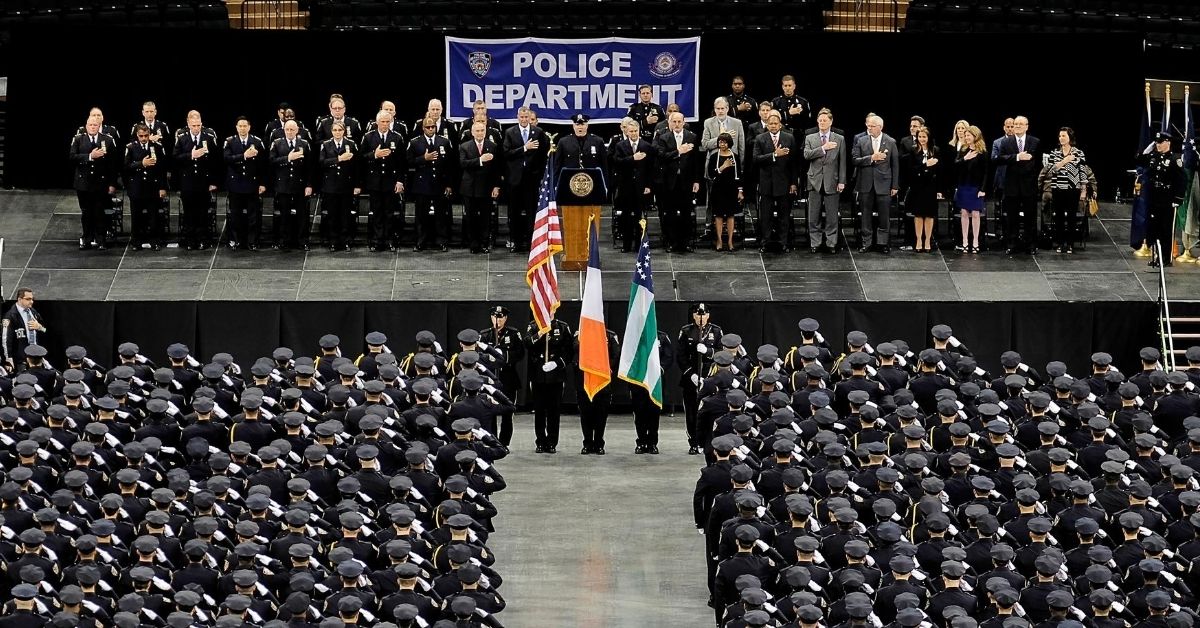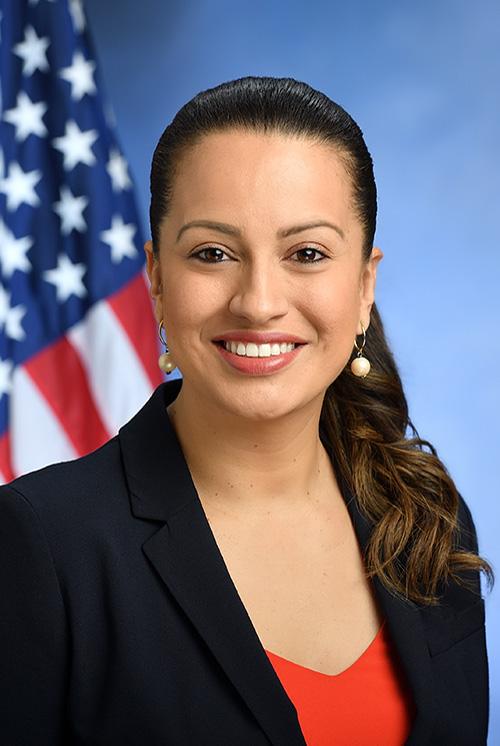
NYPD Police Academy Graduation Ceremony (Diana Robinson/Mayoral Photography Office)
Aug. 20, 2020 By Michael Dorgan
Assemblywoman Catalina Cruz has introduced legislation that would require all future NYPD recruits to live within the city in order to serve on the force.
The legislation seeks to improve the quality of policing in city neighborhoods by making sure that those who serve the community also live in the community.
The bill is being sponsored by State Sen. Kevin Parker in the senate and would require all NYPD officers hired after Jan. 1 2021 to live within the five boroughs.
The new recruits would have one year to move into New York City after they graduate from the Police Academy, according to the bill.
Cruz said that officers will have a greater desire to improve the neighborhoods they serve if they live among the population. She said the residency requirement would significantly improve relations between cops and residents which would in turn benefit the community as a whole.
“When you have a police officer who, at the end of their workday, is able to clock out and tune out and not really have to think about the consequences of not just their own actions, but the force … they don’t feel invested,” Cruz said during a Zoom press briefing Wednesday.
Around 49 percent of uniformed NYPD cops presently reside within the five boroughs, according to official police data. There are nearly 36,000 uniformed officers serving in the force.
Under current rules, cops who have completed two years of service are permitted to reside in the city as well as in Westchester, Rockland, Orange, Putnam, Nassau or Suffolk counties.

Assemblywoman Catalina Cruz (NY State Assembly)
Cruz, who represents residents of Corona, Elmhurst and Jackson Heights, said the bill forms part of a wider effort to reform the NYPD and the criminal justice system in light of widespread protests against police brutality.
She said that the low numbers of cops living among the community has made it harder to bring about the necessary changes.
“I want an officer who is so invested in their work that they’re willing to have the conversation about how to reform a system that they’re a part of,” Cruz said.
“We can’t have the conversation about equality and brutality about what is happening in our community if the people who are patrolling our streets are not from our communities,” Cruz said.
Cruz also touted the economic benefits of the bill, noting that the salaries the officers earn would be spent in the city and not in the suburbs. She said this would help the local economy at a time when it is undergoing a downturn.
The bill, which is in committee stage, would not apply to existing serving officers.
Parker said that he was not in favor of uprooting cops who have been serving the force for a long period of time.
“We’ll add enough police that over time we’ll get there,” Parker said.
Parker said that while the state legislature is not currently in session, he wants the bill to be voted on when representatives are called back to deal with budgetary matters. Parker said he expects members to be called back shortly.
Mayor de Blasio said at a press conference last week that he supports more officers residing in the city but said that living costs are too high to force such a move.
However, around 94 percent of civilian workers for the NYPD live in the city, according to data obtained by Streetsblog.
The NYPD’s civilian workforce has a residency requirement and are paid less than uniformed officers.
4 Comments

It’s expensive to live in any neighborhood in this city and new cops don’t make a lot of money. Another bunch of politicians who have no sense of people’s reality. I hope the bill doesn’t pass because anybody that wants to be a member of the NYPD, but lives somewhere else, I welcome you with open arms.
I believe this will accelerate the number of cops who retire and others who will quit and try and find law enforcement jobs outside the City.
We need more qualified and better trained police from anywhere, not fewer overworked police all coming from Staten Island and Bayside.
This is a good idea. I hope it passes.